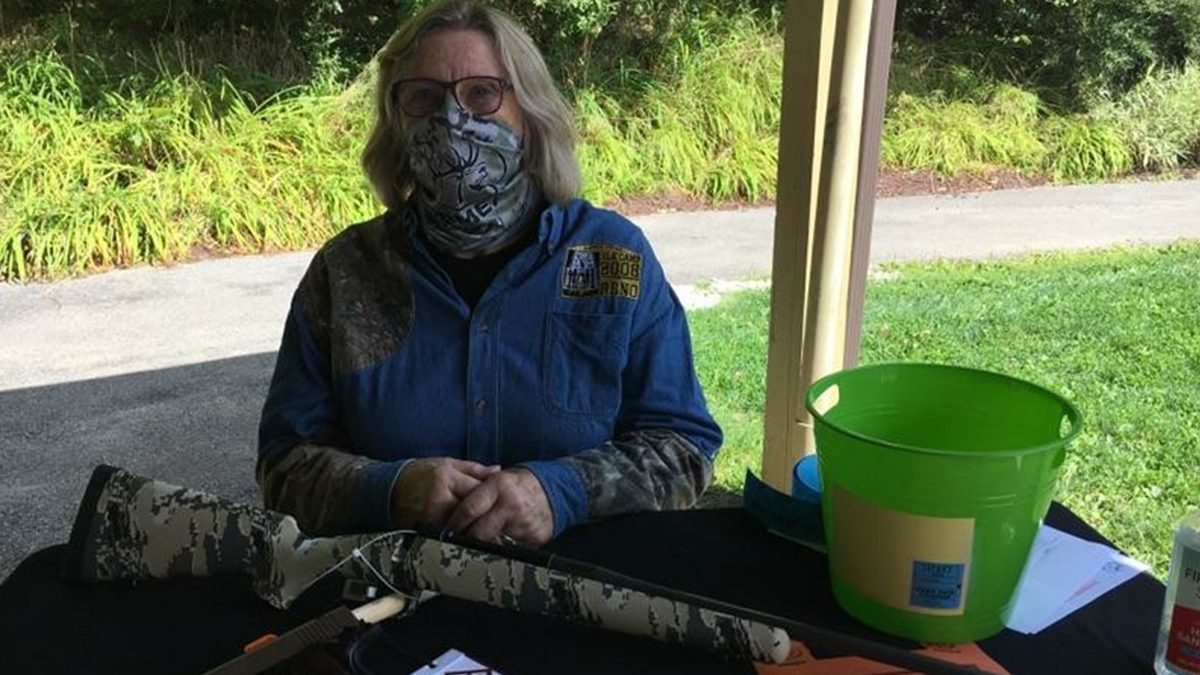RMEF banquets usually don’t look too different from one another, at least in basic format. But these are different times. This year, New York and New Hampshire volunteers changed up their event format in response to state safety regulations in place due to the COVID pandemic. Regional Director Tim Foster made sure he understood the regulations. “We’re not going to put our attendees, our volunteers, or the RMEF in jeopardy,” he says.
The Leatherstocking Chapter committee in Cooperstown, New York, was leaning towards canceling its event. Foster says the uncertainty of planning amid daily capacity changes was a big challenge. “One day you can have 250 people and then the next day you can only have 50,” he says. “Well, that’s a big difference.” Another challenge was getting volunteers to run the event. “We had people who were told they could not come to the event or else they’d lose two weeks of sick leave or vacation, to quarantine before they could return to work,” says Foster. Some volunteers made the commitment to help even if they would lose vacation or sick time. Some employers started granting exceptions if the volunteer got a COVID test after the event and other volunteers were retired or had jobs where they could self-quarantine after the event.

Finally, it was clear that they would have enough volunteers to run an event, and local regulations would limit the event to 50 people at a time. Chris White, a member of the committee, had an idea. Why not change the format? There were options.
Committee members sat for an hour and came up with a format that they thought would work. Instead of one long event, they set up three, hour-long time slots during which 50 guests could socially distance, visit, tell stories, bid on silent auction items and buy raffle tickets. A silent auction ran through the duration of each time slot, and more drawings were added as they sold out. At the end of their hour-long time slot, the guests would pick up their takeout meal and leave, and the next group of 50 people would arrive.
Foster and Chapter Chair Randy Hoose called each attendee and signed them up for one of the three designated timeslots.
The new format worked well on August 8. The committee sold out three drawings in the first hour. The groups of people came bringing their own money and money from friends who couldn’t attend due to COVID. At the end of the three hours there was an outdoor auction which allowed more than 50 people. The groups from earlier timeslots came back for the auction. One group had set up tailgates in the parking lot. The outdoor auction saw 78 people show up. Although the outdoor auction did reasonably well, the raffle revenue was through the roof. The chapter netted $30,000 with 78 people.
“People have been calling since the event thanking us profusely for not giving up on the event and making the adjustments that were necessary to make it happen,” says Foster.

After the success of the Leatherstocking Chapter event, volunteers held two more, different-format events. A regular banquet with social distancing requirements took place in Lebanon, New Hampshire, on August 15. Then on August 30, the Southern Tier Chapter held a clam bake and banquet with three, two-hour timeslots and an outdoor auction in Binghamton, New York.
“You know the concept of build it and they will come?” Foster says. “We built a safe and responsible event where people could get together and find some sense of normal. And they came.”